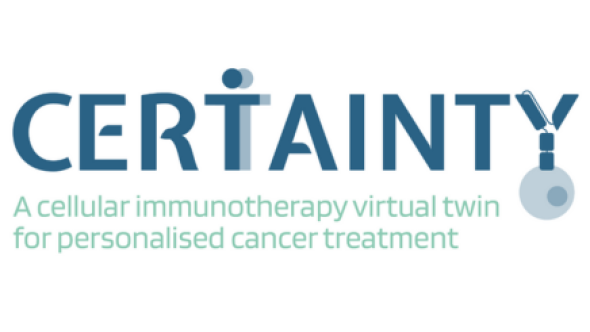In December 2023, an international team in which UNamur is actively involved through the Centre de Recherche Information, Droit et Société (CRIDS) and Professor Jean-Marc Van Gyseghem, launched the groundbreaking research project entitled "CERTAINTY - A cellular immunotherapy virtual twin for personalized cancer treatment". In collaboration with leading partners from science, industry and healthcare, this initiative led by the Fraunhofer Institute for Cell Therapy and Immunology (IZI) aims to shape a promising future for optimizing cancer treatment through the development of a virtual twin.
In cancer treatment, immunotherapies have emerged as an essential pillar in oncology alongside conventional treatments such as surgery, radiotherapy and chemotherapy. The CERTAINTY project focuses on the development of a virtual twin, an innovative advance aimed at improving treatment using immunotherapy. Led by the Fraunhofer Institute, the team is collaborating closely with global experts to realize this ambitious project.
Personalized immunotherapies, such as CAR-T cell therapy, enable more precise phenotyping (a genetic inventory) of each patient. Clinical, imaging, molecular and cellular data are collected and processed to personalize diagnosis, therapeutic decisions and follow-up. To fully exploit this potential, the concept of the virtual twin is introduced, merging molecular and cellular characteristics with clinical progression data in a constantly updated digital representation.
The virtual twin, initially developed for multiple myeloma, a bone marrow disease, aims to comprehensively reflect patients' individual pathophysiology. It will be used to simulate prognoses of disease progression and evaluate different treatment options. This groundbreaking project will not only help improve patient care, but also optimize the use of costly drugs, thus relieving the burden on the healthcare system.
